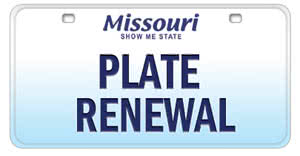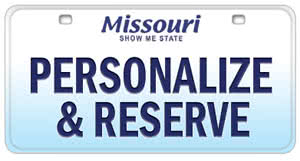Department of Revenue
Truman Building, Room 670
P.O. Box 311
Jefferson City, Missouri 65102
573/751-4450
dor.mo.gov
The Missouri Department of Revenue was created in 1945 by the Missouri Constitution to serve as the central collection agency for all state revenue. The primary duties of the Department are to collect taxes, title and register motor vehicles, and license drivers.
In 2009, the Department began the process of offering for bid all license offices, eliminating the era of license office patronage in Missouri. The Department also improved the functionality of the online vehicle registration system.
The Department of Revenue consists of four divisions and the director’s office.
Motor Vehicle and Driver Licensing Division
The Motor Vehicle and Driver Licensing Division administers Missouri’s laws that relate to titling and registration of motor vehicles, trailers, all-terrain vehicles, manufactured homes, and marine craft, and licensing drivers. This division consists of three bureaus.
License Offices Bureau
The License Offices Bureau manages the operations of 178 license offices throughout the state. These local offices provide driver licensing and motor vehicle services to Missourians and are operated by individuals or businesses approved through the state of Missouri bid process.
Driver License Bureau
The Driver License Bureau issues, renews, suspends, revokes, and reinstates driver and nondriver licenses and driving permits. The bureau processes and maintains records relating to license issuance, traffic violation point assessments, and failure to appear in court for traffic violations, and also administers administrative alcohol and abuse and lose laws for alcohol/drug offenders.
Motor Vehicle Bureau
The Motor Vehicle Bureau issues titles and registers motor vehicles, trailers, all-terrain vehicles, manufactured homes, and marine craft. The bureau also issues registration certificates to motor vehicle and salvage dealers and leasing companies.
Taxation Division
The Taxation Division administers Missouri’s tax laws. It processes and administers forms and reports for the collection of revenue due the state and local taxing jurisdictions. This division has four bureaus.
Business Tax Bureau
The Business Tax Bureau administers sales and use, financial institutions, insurance premiums, franchise, excise, cigarette and other tobacco products, motor fuel, corporate income, withholding, and county taxes and fees.
Personal Tax Bureau
The Personal Tax Bureau administers individual income, partnership, fiduciary, and estate taxes.
Collections and Tax Assistance Bureau
The Collections and Tax Assistance Bureau provides tax assistance to individuals and businesses and performs appropriate procedures for unpaid tax liabilities.
Field Compliance Bureau
The Field Compliance Bureau audits businesses both in-state and out-of-state to ensure compliance with Missouri’s tax laws.
Administration Division
The Administration Division provides administrative support to all other areas of the Department. This division includes two bureaus:
Personnel Services Bureau
The Personnel Services Bureau is responsible for the Department’s personnel matters, forms, legislative contacts, process improvements, policies and procedures, training, and written communications.
Financial and General Services Bureau
The Financial and General Services Bureau is responsible for all accounting, procurement, banking, and general service matters. This bureau also coordinates space and location needs, telecommunications, safety issues, maintenance, and improvement of the work environment within the Department.
Legal Services Division
The Legal Services Division ensures the Department’s compliance with law and internal policies.
General Counsel’s Office
The General Counsel’s Office advises the director and divisions on legal matters relative to the Department, and represents the Department in courts and administrative tribunals.
Criminal Tax Investigation Bureau
The Criminal Tax Investigation Bureau investigates and develops information leading to local prosecution of individuals and businesses suspected of violating the laws that the Department administers.
Compliance and Investigation Bureau
The Compliance and Investigation Bureau (CIB) conducts investigations involving allegations of fraud relating to motor vehicle sales tax, titling and registration, odometer, and motor fuel sales tax as well as cigarette tax fraud, driver’s license fraud and license plate fraud. CIB also ensures the compliance of motor vehicle dealers, salvage businesses, and marine dealers with statutes and licensure regulations. In addition to external investigations, CIB conducts internal audits and investigations of the Department of Revenue and motor vehicle fee offices.
Director’s Office
The Director’s Office includes the director, deputy director, and key administrative staff responsible for the overall guidance and direction of the Department.
Legislative Office
The Legislative Office serves as the Department’s liaison to the General Assembly. The office provides technical assistance and develops fiscal and revenue estimates on proposed legislation and monitors progress of bills through the legislature.
Public Information Office
The Public Information Office develops and maintains positive media and public relations for the Department.






















